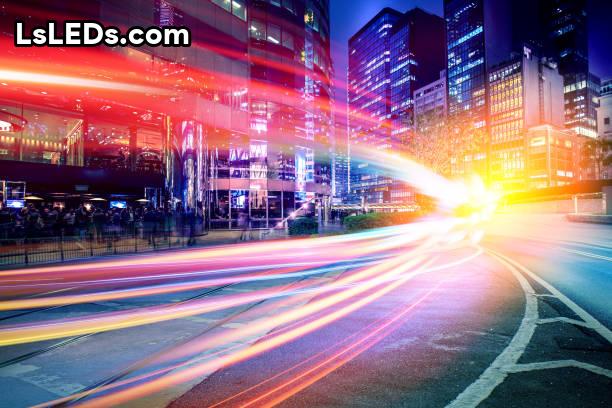
Table of Contents
Can LED lights give you cancer?
An international team of researchers have concluded that there is a strong link between the two.
Are LED lights harmful to humans?
According to the American Medical Association, long-term exposure to blue peaks from LEDs can increase the risk of eye diseases. Studies show that light emitted by LEDs can cause changes in the eye.
Do LED lights give off radiation?
Depending on a number of variables, the eyes and skin can be damaged by the optical radiation emitted by the lights. Exposure to optical radiation from LEDs is not likely to be as significant as exposure to natural light outdoors.
Can blue LED lights cause cancer?
The researchers found that people who were exposed to high levels of blue light at night had a twofold higher risk of developing breast cancer than people who were not exposed.
Are LED lights bad for your eyes 2020?
Since the lights are so bright, there are questions as to whether or not they can cause damage to our eyes. Don’t worry at all. They will not hurt your eyes, that’s the short answer. The same amount of blue light is used by our phones, computers, and tablets.
What are the disadvantages of LED lights?
What is the major disadvantage of LED lights?
The red end of the spectrum emits more blue light than the blue end of the spectrum when it comes to light bulbs.
Is LED light harmful to health?
Today’sLED lights are just as safe as any other modern light source for your eyes, and, in fact, they are used in skin and other health therapies because they don’t contain ultraviolet rays like other types of light therapies.
What is the advantage of LED lighting?
Not only doLED holiday lights consume less electricity, they also have a number of other benefits. The LEDs are resistant to breakage and are made with a different type of lens.
When should you not use LED lights?
If the value is no, the bulb shouldn’t be used indoors. If a light bulb is used in an enclosed fixture that isn’t designed for it, it could cause the bulb to heat up and cause damage to the fixture.

Why are LED lights bad for your eyes?
According to a new report, the “blue light” inLED lighting can cause damage to the eye’s retina and disrupt sleep rhythms. It said that exposure to an intense and powerful light can cause irreversible loss of cells in the eye.
Are LED lights bad for your eyes?
The answer is no, they will not hurt your eyes. There is a concern about the blue light used in the bulb. It can be a problem for people with existing eye conditions. The same amount of blue light is used by our phones, computers, and tablets.
Why do LED lights bother my eyes?
We know that fluorescent lights can cause headaches. The issues are likely caused by the rapid flicker they both emit, as well as the high proportion of blue light wavelength.
Are warm white LED lights bad for eyes?
Adults over 50 are more likely to suffer from vision loss due to ARMD. Warm white blue light is different from traditional lighting because it has weak phototoxicity risks.
Which light is best for eyes?
The best light for eyes is 4,900 to 6,500 K. The cold light of 6,500 K has an excellent level of brightness.
Why is LED harmful to humans?
You don’t block blue light very well. This means that blue light can damage your eye’s cells and cause vision loss.
Why is LED so toxic?
It’s bad for humans to have lead in their body. This results in a number of symptoms, including muscle and joint pain. Our brains are damaged by how brain cells are interfered with.
Are LED lights safe for bedroom?
It’s very safe. The only downside to LEDs is that they emit blue light. You should also consider the fact that you are exposed to blue light from a lot of different sources.
Is it true that LED lights cause cancer?
Night shift work may be harmful to humans according to the World Health Organisation. There is evidence pointing to an association between exposure to artificial light at night and diseases such as breast and prostate cancer.
Are LED lights harmful to skin?
The ultraviolet rays that are contained in the lights are not harmful to the skin. Some studies show that certain types of light therapy can help with skin concerns.
